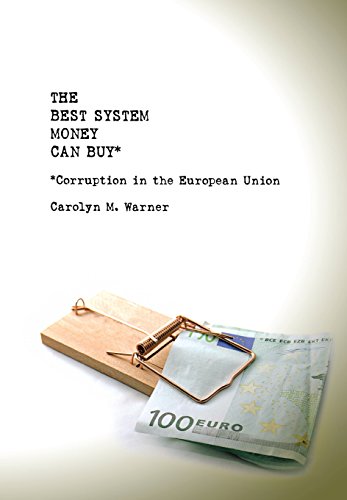

Most ebook files are in PDF format, so you can easily read them using various software such as Foxit Reader or directly on the Google Chrome browser.
Some ebook files are released by publishers in other formats such as .awz, .mobi, .epub, .fb2, etc. You may need to install specific software to read these formats on mobile/PC, such as Calibre.
Please read the tutorial at this link. https://ebooknice.com/page/post?id=faq
We offer FREE conversion to the popular formats you request; however, this may take some time. Therefore, right after payment, please email us, and we will try to provide the service as quickly as possible.
For some exceptional file formats or broken links (if any), please refrain from opening any disputes. Instead, email us first, and we will try to assist within a maximum of 6 hours.
EbookNice Team

Status:
Available4.4
37 reviewsAs the European Union moved in the 1990s to a unified market and stronger common institutions, most observers assumed that the changes would reduce corruption. Aspects of the stronger EU promised to preclude―or at least reduce―malfeasance: regulatory harmonization, freer trade, and privatization of publicly owned enterprises. Market efficiencies would render corrupt practices more visible and less common.
In The Best System Money Can Buy, Carolyn M. Warner systematically and often entertainingly gives the lie to these assumptions and provides a framework for understanding the persistence of corruption in the Western states of the EU. In compelling case studies, she shows that under certain conditions, politicians and firms across Europe, chose to counter the increased competition they faced due to liberal markets and political reforms by resorting to corruption. More elections have made ever-larger funding demands on political parties; privatization has proved to be a theme park for economic crime and party profit; firms and politicians collude in many areas where EU harmonization has resulted in a net reduction in law-enforcement powers; and state-led "export promotion" efforts, especially in the armaments, infrastructure, and energy sectors, have virtually institutionalized bribery.
The assumptions that corruption and modernity are incompatible―or that Western Europe is somehow immune to corruption―simply do not hold, as Warner conveys through colorful analyses of scandals in which large corporations, politicians, and bureaucrats engage in criminal activity in order to facilitate mergers and block competition, and in which officials accept private payments for public services rendered. At the same time, the book shows the extent to which corruption is driven by the very economic and political reforms thought to decrease it.